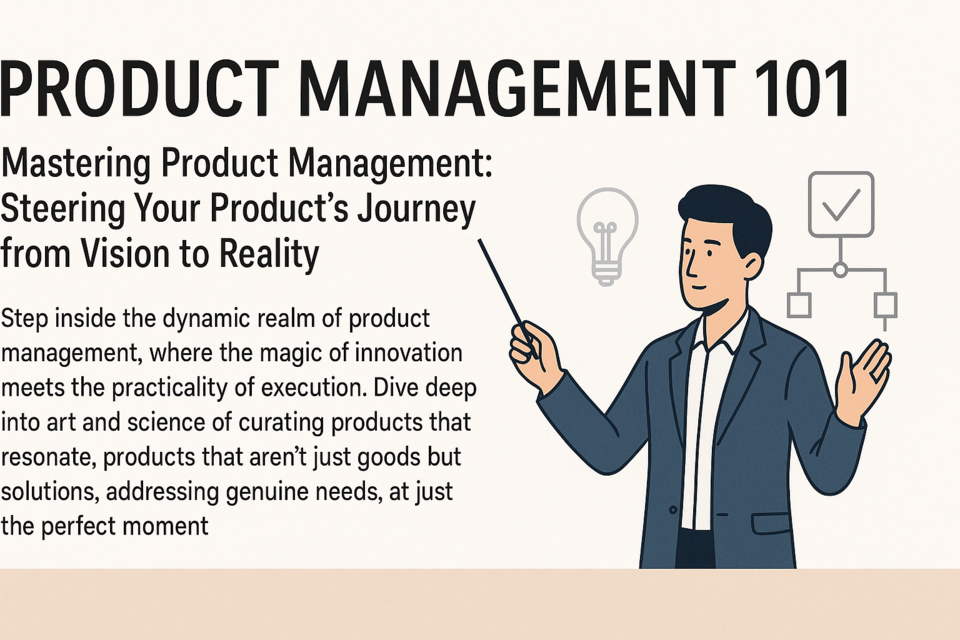The principles for marketing a consulting business are no different than any other company. Therefore, a marketing plan is important to you as a consultant. Marketing is the ability to identify and meet human needs. The American Marketing Association defines marketing as the organizational function and set of processes for creating, communicating, and delivering value to customers, and for managing customer relationships in a way that benefits the organization and its stakeholders. Marketing management is the art and science of choosing target markets and keeping, getting, and growing customers through creating, delivering, and communicating superior customer value. There are multiple customer markets, including: consumer markets, business markets, and global markets. These are all affected by communication, money, and information. In order for your consulting company to lead the market, you must strengthen your brand name, measure your marketing effectiveness, develop new products based on your customers' needs, gather feedback from your customers, and utilize new marketing technologies.
When developing a marketing strategy, it is also important to think from the perspective of how the client will choose you. Unless you are highly specialized, you may be competing with other potential consultants. So here are some things companies look for, as you develop your strategy for marketing.
-
Do you have a written process?
-
Is your process turning away consultants from future advertisements?
-
Is it timely and efficient?
-
Is it consistent from project to project?
-
Are you attracting the most qualified firms?
-
What is the true cost of the process for firms?
-
Can the process be improved?
If you are the sole consultant for your company, you will be responsible for the marketing of your firm. In order to best market, you must understand some of the marketing strategies and market forces. There are a number of factors that affect how you market, where you market, and to whom you market.
Emerging marketing forces
-
Improvements in information technology allow you to make more targeted communications, and to more effectively produce your products.
-
Competition from online stores, direct-mail firms, and e-commerce is transforming the market for small retailers and brick-and-mortar stores.
-
Converging markets within industries helps some companies survive in the marketplace, where market giants like Gateway and Dell rise and fall more rapidly.
-
Globalization affects transportation, communication, and shipping throughout the world, where it is easier for consumers to buy products from other countries.
Increased consumer capabilities
Consumers have increasing opportunities for purchasing goods and services in today's market.
-
Public opinion � As technology improves, specifically the use of the Internet, social media plays a large part in peer influence and public opinion. Social networks like Facebook, Flickr, Pinterest, and YouTube allow for a wide array of comments on products and services within the marketplace. Customers are easily able to post opinions and videos about products or services particularly if they are unhappy.
-
Buying power � Consumers are more able to compare prices and services using the Internet for almost any item they want to purchase. Comparison of products and services are just a click away. This gives consumers more buying power.
-
Greater variety � Consumers have far more products and services readily available, at the click of a mouse, than they ever have in the past. Quite often, there are hundreds of websites offering the same product, with differing levels of quality and different pricing.
-
Greater information � As a consumer, you have the ability to purchase from all over the world, removing the restriction of just local goods or services.
-
Greater access � Consumers of today can make a purchase 24 hours a day, seven days a week, from their mobile phone, home, or office -- and have the goods delivered within a very short time.
As a consultant, you will make a determination on the best marketing mix for your company. This will be somewhat trial and error, but otherwise based on researching the market. Depending on whether you want to offer a solution to your clients, make your product more readily available, or simply inform your clients with information, your marketing activities should focus on four key dimensions of customer needs. This includes:
-
Solutions � the ability to resolve problems for customers
-
Information � lets consumers know where they can learn more about a product
-
Value� allows customers to weigh the cost and see the total value of the solution
-
Access � lets the customer know where they can find it
There are several key questions you need to ask yourself when developing your marketing plan. You develop your strategy by identifying potential long-term opportunities and combining them with your core competencies. Let's review the list now:
-
How do you choose the right market segment?
-
How do you differentiate your company's offerings?
-
How do you customize the offerings for each customer?
-
How do you develop customer loyalty?
-
How can you tell which customers provide the most value or importance to your company?
-
How do you measure the payback from your marketing and advertising actions and investments?
-
How do you improve sales?
-
How do you respond to customers who only buy on price?
-
How do you establish multiple marketing channels, and yet maintain a manageable span of control?
To answer these questions, there are several actions you must take.
-
Connecting with the customer � This includes creating the best value for your customer in developing a strong, profitable, long-term relationship. As the company owner, you need to determine, through questioning or surveys, what your customers are looking for in terms of features and prices. How do they make their purchasing decisions? Is it by an individual, group, or a committee?
-
Building a stronger brand � This involves continual refinement of your abilities and competencies, and refining your look and feel and branding.
-
Monitoring market trends and innovation � As you look at your macro-environment to determine client demographics, culture, and economic scale, you focus your marketing research on measuring market potential, determining your forecast demand, and measuring your marketing expenditures in relation to marketing activities.
-
Shaping and refining your market offerings � This includes determining what marketing factors to include in your sales pitch, such as quality, design, and features. In providing for other factors, such as price discounts, credit terms, and other activities, you give your clients a greater perceived value in your competition can offer. As a consulting firm owner you will to maintain an active monitor marketing insights through use of the Internet and other marketing and advertising channels.
-
Delivering quality and value � this should be embodied in all of your marketing activities you want to communicate the value of your products and services to your customer through mass communication programs which consist of advertising, public relations, and holding conferences or events.
By connecting with the customer, building a stronger brand, monitoring market trends and innovations, shaping your offerings, and developing a consistent ability to deliver quality and value, you are developing your overall marketing strategy. Within your strategy, you will develop your marketing mix. Your marketing mix will consist of the channels you use to deploy your consulting services. Quite often the marketing mix is a combination of pricing, service delivery, advertising, and customer service. As a consultant, there will always be a demand for your services; but consulting, like any other business, has its ebb and flow with market demand. As a consulting business owner, you are responsible for coordinating your marketing mix to improve your market share and penetration. Market share is the selective demand that clients have for your products and services, over other clients. The market penetration is the growth of your firm within the market.
Marketing mix
Structured under your strategic plan and marketing mix are the core business processes that you need to maintain as a consultant to maintain customer value.
-
Client acquisition process includes all the activities you do to define your target market and network for prospecting new clients.
-
Client relationship management process includes the activities you used to develop a deep relationship and understanding of your clients, to better offer them services.
-
Market intelligence process includes all the activities you do to develop market information, and your client offerings or new services and the actions you take on this information.
-
Innovation and new offering process includes the activities you undertake to research, develop, and launch new services to your clients.
-
Delivery management process includes all the activities you undertake as a consultant to develop your final product and presentations to deliver to the client.
As a consulting business owner, you want to spend more time consulting than marketing. A number of companies spend significant amounts of money developing worthless brochures and websites that have little return on investment, and do not grow the customer relationship or market penetration desired. Knowing this key information, you want to focus your intent and creativity on crafting the message that results in the most action. This type of marketing is called breakthrough marketing, and is often used by businesses that already exist in the market, but want to maintain growth within the market. This can be accomplished through a combination of efforts, including customer knowledge. This means interacting with your clients and knowing their needs. Other efforts that will help you with your breakthrough marketing include developing a quality strategy, which conveys to potential clients that you have above-average quality. A brand extension strategy, by offering additional consulting services and good communications to create client awareness and develop preference.
Breakthrough strategies focus on the distinctive characteristics of your consulting service; your ability to sell your services to a client is much different from a tangible product. The best way to convince clients to use your services is to use a service quality model. Service quality models focus on reliability, responsiveness, assurance, empathy, and tangibles. Reliability is your ability to provide the promised consulting service dependably and accurately. Responsiveness is your willingness to help your clients by providing prompt consulting services. Assurance is your ability, as a consultant, to convey trust and confidence to your clients and to show courtesy, knowledge, and expertise.
As you market your plan you want to ensure that your written offer conveys the positive benefits of using your consulting company. These positive benefits include:
-
Offering the most qualified consultants
-
Technical knowledge
-
Maximizing efficient use of the client's time
-
Minimizing of regulatory or legal issues
-
The written code of conduct
-
No conflicts of interest
-
Ability to meet scheduled deadlines
-
The highest quality
As you develop your consulting business in conjunction with offering services, you may also want to offer products. Based on the type of consulting you do, you may want to offer printed materials, DVDs, or CDs for future clients, or additional clients, based on the work you have already performed. This provides you with a broader sales base.
Determining your pricing for your consulting services will help you develop a baseline, or standard practice cost, for your services. Make sure that you are comfortable with the prices you charge and that you are paid adequately for your services. You must understand the overhead cost for your business and make sure that you are covering the cost of running your business. This also includes payroll and benefits costs, and non-visual costs such as insurance coverage. Part of your marketing strategy may be in setting your price to become competitive or more attractive than other consultants, prices. Although you want to maintain a competitive rate in the market. You also want the rate to be attractive. You can develop the framework for the prices you charge by bench-marking other consultants in the area to determine your rate-setting methodology. This may include hourly rates for services, weekly fees, or a retainer. Clients will have different preferences for rate charges. Some will prefer an hourly basis, while others prefer to know the overall cost of your consulting.
Improving your marketing presence and your overall marketing strategy is very important to increasing your client base. Over time, you will develop a listing of new and prior customers. There are several marketing methods you can use, which include the traditional methods of printed advertising in newspapers and business journals. Then, there are a number of not so traditional methods that you can use to boost your business, which include public speaking and tailored presentations, articles, and newsletters. Your marketing is a constant process of self-marketing and self-promotion. Consulting companies spend a considerable amount of their time marketing their services. These charts display some of the common marketing aspects of consulting marketing.
Branding
When branding your company, there are a number of ways this can be accomplished. The primary focal point is your consulting proposal. Make sure it includes your logo and brand on letterhead, on notebooks, on business cards, pens and pencils, on cell phone applications, CDs, envelopes, and other items you may use for advertising, such as cups, or literature.
Consultant screening
Many potential clients who routinely use consulting services may uses a selection screening process. Remember, there may be multiple consultants bidding on the same job. Knowing this allows you to plan accordingly and adjust your marketing strategy to meet the needs of the request for bid.
Offer package projects at a discount
You may offer package projects. This would involve taking on many different parts of the company that need some consulting advice -- offering additional consulting days for follow-up at no additional cost.
Offer discounts on future business
Once you have performed consulting services for a client, you may offer them additional services at a discounted rate.
Summary Reminders and Takeaways
Your business's marketing strategy is the most important factor that affects your finances. A marketing plan is a key tool in determining your overall needs and goals for your company. It is important that you understand consumer markets, business markets, and economic effects. Be sure that you have a written process for marketing, which you can audit, that provides timely and efficient use of your financial expenditures and is consistent from project to project.
The Internet and social media provide the greatest opportunities for marketing success today. Consumers are exposed to public opinion on a frequent basis. They have greater buying power, greater variety, greater information, and greater access than ever before. Consumers can view your consulting firm's marketing 24 hours a day, seven days a week, from their mobile phone, home, or office. How far you expand your marketing is up to you. It is as simple as a newsletter, or as innovative as a consulting application clients use from their phone.
Your marketing plan should address the four key dimensions of customer needs: the ability to resolve problems for the customer, to let them know where they can learn more about your product, to weigh the opportunity cost, to see the total value of your solution, and to let the customer know where they can find your services. These are known as solutions, information, value, and access.
The actions you must take in the development of your marketing plan will also address how to connect with the customer, how to build a stronger brand, monitoring market trends and innovation, how to shape and refining your market offerings, and how to deliver quality and value.
The marketing mix consists of products, price, promotion, and place. You want to develop your marketing share, because it is the selective demand that clients have for your products and services over competitors. This includes what you offer, any discounts or credit terms, how you do sales and marketing, what kind of education you provide about your products or services, as well as what type of marketing channels you have.






























